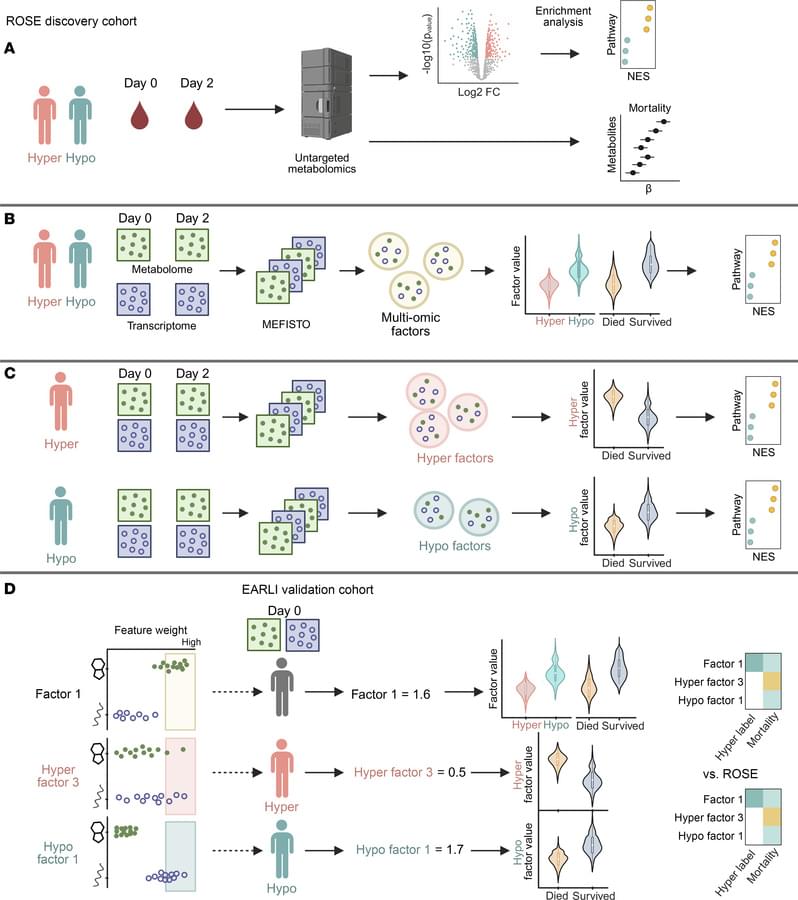A new CRISPR-powered light sensor can detect the faintest whispers of cancer in a single drop of blood.



First dogs, then …
Biotechnology group says treated animals showed improved survival and functional measures in early-stage study
Genflow Biosciences Ltd (LSE: GENF, OTCQB: GENFF, FRA: WQ5) said positive preliminary interim results from its SLAB clinical trial showed improved survival and functional outcomes in aged dogs treated with its proprietary SIRT6 centenarian gene therapy.
The biotechnology company, which focuses on developing gene therapies for age-related diseases, said the randomised, blinded study enrolled 24 beagle dogs aged over 10 years and was conducted by an independent contract research organisation.

Greater access to legal cannabis is associated with a significant drop in daily opioid use, suggesting that cannabis availability may reduce reliance on opioids for pain or other use.
How can cannabis legalization influence opioid use? This is what a recent study published in Drug and Alcohol Dependence hopes to address as a team of researchers investigated behavior connections between cannabis use and opioid use. This study has the potential to help scientists, medical professionals, legislators, and the public better understand the benefits of cannabis, including how it can help the opioid epidemic.
For the study, the researchers analyzed survey data collected from 28,069 individuals designated as people who inject drugs (PWID) during 2012, 2015, 2018, and 2022 across 13 states. The goal of the study was to compare medical cannabis and medical plus recreational cannabis use to opioid use. The respondents were asked to report their past 30-day use for both cannabis and opioids. In the end, the researchers found that users who subscribed to both medical plus recreational cannabis use compared to just medical cannabis use experienced a 9–11 percent decline in opioid use.
The study notes in its conclusions, “Cannabis legalization may shape daily opioid consumption among PWID, potentially reducing drug-related harms. Differences in cannabis use following legalization may reflect disparate impact by race, due to structural racism or other factors. Future research examining whether policy attributable changes in substance use manifest health benefits among PWID is critical to developing evidence-based cannabis reform.”
Humanoid robots with full-body autonomy are rapidly advancing and are expected to create a $50 trillion market, transforming industries, economy, and daily life ## ## Questions to inspire discussion.
Neural Network Architecture & Control.
🤖 Q: How does Figure 3’s neural network control differ from traditional robotics? A: Figure 3 uses end-to-end neural networks for full-body control, manipulation, and room-scale planning, replacing the previous C++-based control stack entirely, with System Zero being a fully learned reinforcement learning controller running with no code on the robot.
🎯 Q: What enables Figure 3’s high-frequency motor control for complex tasks? A: Palm cameras and onboard inference enable high-frequency torque control of 40+ motors for complex bimanual tasks, replanning, and error recovery in dynamic environments, representing a significant improvement over previous models.
🔄 Q: How does Figure’s data-driven approach create competitive advantage? A: Data accumulation and neural net retraining provides competitive advantage over traditional C++ code, allowing rapid iteration and improvement, with positive transfer observed as diverse knowledge enables emergent generalization with larger pre-training datasets.
🧠 Q: Where is the robot’s compute located and why? A: The brain-like compute unit is in the head for sensors and heat dissipation, while the torso contains the majority of onboard computation, with potential for latex or silicone face for human-like interaction.

What are the genetic origins of early-onset obesity?
Studying a cohort of young adults in China, researchers in Science TranslationalMedicine performed deep sequencing and identified a loss-of-function variant in the gene TUB that impairs sensitivity to leptin.
Rare human TUB variants impair leptin sensitivity through disruption of STAT3 activation, leading to hyperphagic obesity.


New in the RedJournal: replanned TROG 12.01 unilateral cases to define guidelines for unilateral RT planning with maximal midline and contralateral sparing. @TROGfightcancer RadOnc HNcsm.
Unilateral radiotherapy (URT) is an effective treatment strategy in selected patients with lateralized tonsil cancer. However, there is a lack of established planning guidelines for URT treatment leading to suboptimal optimization of contralateral and midline organs at risk (OARs). This study aimed to re-optimize URT plans to maximize sparing of midline and contralateral OAR’s while maintaining target coverage, providing dosimetric guidelines for URT planning.

Neutrophils are known as first responders to threatening infections and feature prominently in the microenvironment of tumors to resist cancer progression. Though neutrophils have been linked to the growth of multiple cancers, such as lung and breast, these cells can assume multiple functional states.
In a new study published in Cancer Cell titled, “ CCL3 is produced by aged neutrophils across cancers and promotes tumor growth,” researchers from Ludwig Institute for Cancer Research in Lausanne have discovered a gene expression program executed by tumor-associated neutrophils (TANs) and a corresponding biomarker that uniformly support cancer cell survival and tumor progression across human and murine tumors.
Results demonstrate that TANs characterized by this conserved genetic program are a central variable of the tumor microenvironment (TME) linked to cancer progression. The authors also identify an associated marker, CCL3, as key to supporting cancer growth.

A vaccine designed to fight HPV-driven head and neck cancers has shown promising results in a lab study in human tissues and mice.
If proven effective in humans, the therapeutic shot could complement standard cancer therapies, and its design may help scientists build better vaccines for other diseases.

Narges Alipanah-Lechner & team perform multi-omics analysis of patients with ARDS, revealing 4 molecular signatures associated with death, all characterized by mitochondrial dysfunction.
1Division of Pulmonary, Critical Care, Allergy, and Sleep Medicine, Department of Medicine, UCSF, San Francisco, California, USA.
2Division of Clinical and Translational Research, Department of Anesthesia, Washington University School of Medicine, St. Louis, Missouri, USA.
3Cardiovascular Research Institute, UCSF, San Francisco, California, USA.